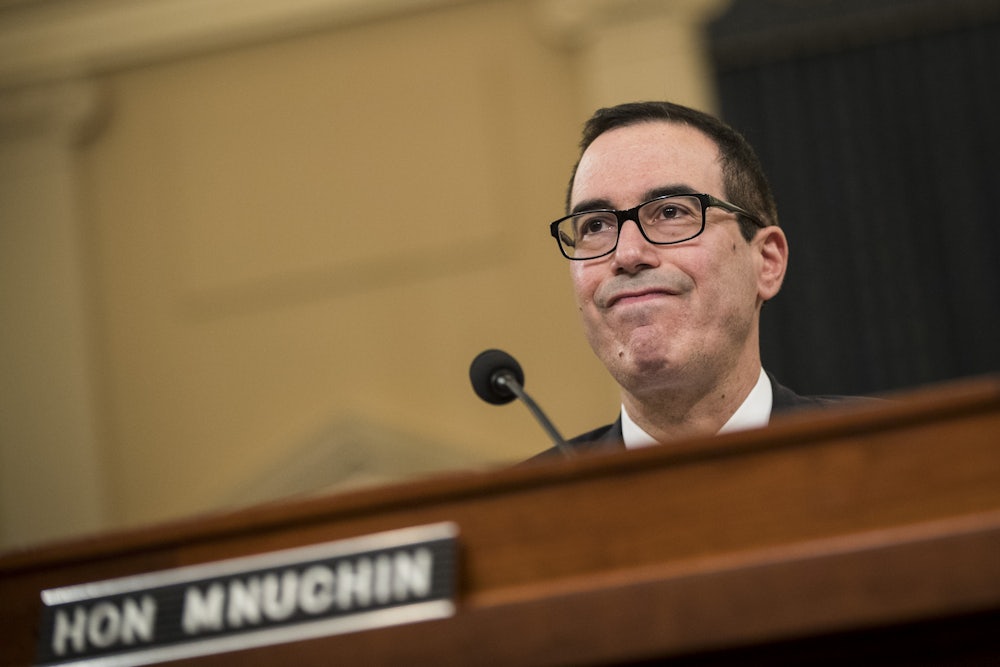With the publication of Bob Woodward’s Fear (which talks about an “administrative coup d’etait” in the White House) and a recent anonymous New York Times op ed from a top Trump administration official who claims to be sabotaging the president’s policy, it has become the vogue to suggest that the real resistance is coming from those working closest to President Trump. This trend has been fed by stories of cabinet officials stealing papers from the president’s desk or otherwise flouting his command, creating a “two-track” presidency.
Now, according to a report by Josh Rogin in The Washington Post, Treasury Secretary Steven Mnuchin might be part of the hidden resistance, at least when it comes to punishing Iran. By Rogin’s account, Mnuchin is thwarting attempts by the president to throttle Iran’s economy by pushing it off SWIFT, a global exchange system for cross-border banking transfers.
As Rogin reports, “other top Trump administration officials and lawmakers want SWIFT to banish Iran again, but Mnuchin and his department are internally opposed to using pressure to force SWIFT to take action, three senior administration officials said.”
Mnuchin’s main tactic seems to be simply not to deliver what the president requests:
In interviews, the officials said Mnuchin has been slow-rolling the decision-making process to delay final consideration by the president. Following a July 26 Principals Committee meeting on Iran, the Treasury Department was tasked with producing an options memo laying out possible sanctions on SWIFT, its board members or their banks. Almost two months later, the document is missing in action — which prevents Trump from making a decision.
In policy terms, there’s much to be said for Mnuchin’s tactics, since Trump’s desire to escalate conflict with Iran could easily lead to disaster. Still, having a “two-track” presidency is also a problem, since foreign governments won’t know what to pay attention to: the president’s frantic words or the very different actions of his administration.
